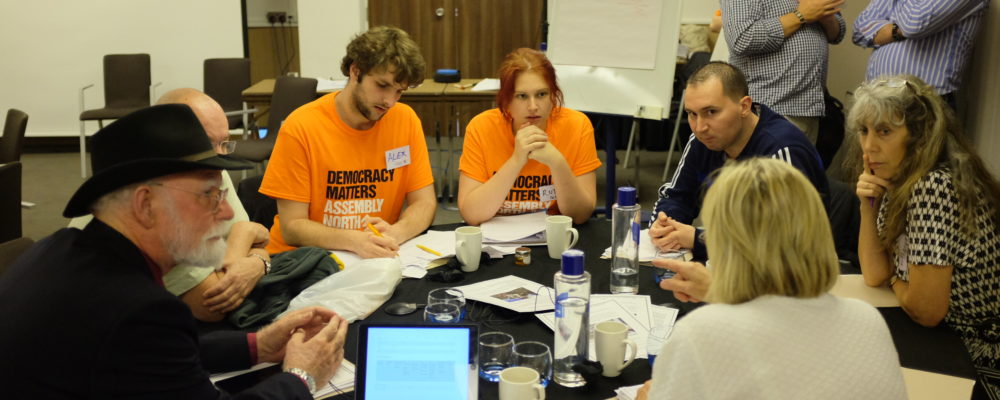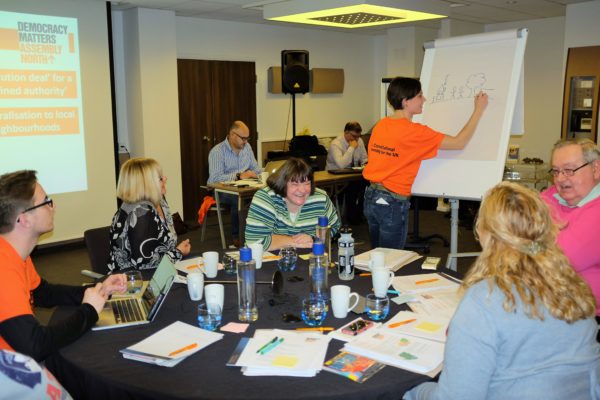A Citizens’ Assembly is a representative group of citizens who are selected at random from the population to learn about, deliberate upon, and make recommendations in relation to a particular issue or set of issues. It is still up to elected politicians whether or not to follow the assembly’s recommendations.
The aim is to secure a group of people who are broadly representative of the electorate across characteristics such as their gender, ethnicity, social class and the area where they live. They could also match political divides like position on Brexit or Scottish independence.
These aren’t just focus groups or consultations though. The goal isn’t to just hear what people already think – but for the members to engage in serious, informed reflection on important policy matters with people they may never normally meet.
Assemblies are generally set a clear task and participants will typically have a set time to complete this. They may meet for one weekend a month for a year, or every weekend for a few months – or just a few times.
In order to ensure that people from as wide a range of backgrounds as possible can attend (e.g. those with dependent children or relatives, or just people who wouldn’t usually get involved can attend), participants are typically paid for their time.
A citizens’ assembly will typically go through three phases: learning; consultation; deliberation and discussion.
Firstly, a learning phase where participants get to know each other and how the assembly works and what its aims are. In this phase, relevant facts about the issue at hand are presented to the participants, who get to ask questions of experts and access background and contextual information.
Secondly, during the consultation phase, campaigners from each side get to present their arguments and be questioned on them.
Thirdly, the participants deliberate amongst themselves – discussing which arguments they found convincing and which they saw straight through. Generally, assembly members will make recommendations at the end of this phase.
Deliberative processes emphasise the importance of reflection and informed discussion in decision-making. This allows people to adopt more nuanced positions on the issues at hand, with a better understanding of the trade-offs inherent in a given decision.
It is essential for a Citizens’ Assembly to be balanced in terms of the information presented to participants.
Generally, the organisers will build an Advisory Board comprising of independent experts and campaigners from both sides of the issue to vet the information given to the participants. The assembly’s speakers will be carefully chosen to give equal representation to all sides of the debates. Participants will be carefully seated to ensure a balance of views and perspectives on each table. The table discussions will also be facilitated to ensure that everyone’s views are heard, but the facilitators are barred from discussing the issues raised.
By randomly selecting a representative group and giving them the tools and time, you can create a proxy for what it would be like if everyone had the tools and time to discuss and debate the important issues.


